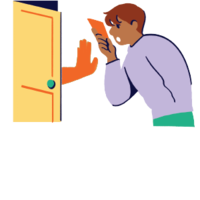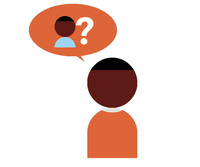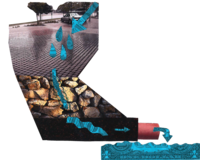2020
‘Civically Engaged Project-Based Learning, Virtually’
The Reinvention Lab via Medium.com
October, 30, 2020
How the Center for Urban Pedagogy is pushing for more relevant, community-based learning in the age of Coronavirus and calls for racial justice.
‘As the 2020 School Year Begins, Know Your Rights and Get Involved’
Rise Magazine
October, 14, 2020
As we begin a new school year amidst the ongoing pandemic, equity issues continue to be exacerbated by the pandemic. You may still lack the equipment needed for remote learning or consistent available WIFI, or may be dealing with continuous changes to plans.
Below, you will find more information about your rights and support available and how you can advocate to protect families and for educational equity. [See] Resources for NYC Parents from Brooklyn Defender Services and The Center for Urban Pedagogy, [including] knowing your rights about your child’s education during the 2020-21 school year [and] information for parents dealing with ACS during COVID.
‘As the 2020 School Year Begins, Know Your Rights and Get Involved’
Rise Magazine
October, 14, 2020
As we begin a new school year amidst the ongoing pandemic, equity issues continue to be exacerbated by the pandemic. You may still lack the equipment needed for remote learning or consistent available WIFI, or may be dealing with continuous changes to plans.
Below, you will find more information about your rights and support available and how you can advocate to protect families and for educational equity. [See] Resources for NYC Parents from Brooklyn Defender Services and The Center for Urban Pedagogy, [including] knowing your rights about your child’s education during the 2020-21 school year [and] information for parents dealing with ACS during COVID.
‘As Cuomo Shutters Schools in COVID Flare Zones, Ground Rules Lag for Child Welfare Reports During Remote Learning’
The City
October, 5, 2020
Before the start of the current school year, multiple groups had urged the state Office of Children and Family Services to declare that a child’s failure to participate in remote learning should not be enough to justify an investigation. “Black and brown families are still going to be negatively impacted, especially in The Bronx where some of our Wi-Fi issues are worse,” said Baker-Burr…Last week, the groups that signed the letter to the state released new “know your rights” pamphlets help families navigate remote learning, and offer advice on what to do if ACS is called.
‘As Cuomo Shutters Schools in COVID Flare Zones, Ground Rules Lag for Child Welfare Reports During Remote Learning’
The City
October, 5, 2020
Before the start of the current school year, multiple groups had urged the state Office of Children and Family Services to declare that a child’s failure to participate in remote learning should not be enough to justify an investigation. “Black and brown families are still going to be negatively impacted, especially in The Bronx where some of our Wi-Fi issues are worse,” said Baker-Burr…Last week, the groups that signed the letter to the state released new “know your rights” pamphlets help families navigate remote learning, and offer advice on what to do if ACS is called.
‘A Guide to Your Rights in Homeless Shelters’
City Limits
February, 19, 2020
The Safety Net Project of the Urban Justice Center, the Safety Net Activists, the Center for Urban Pedagogy and design studio 13 milliseconds this week released a pamphlet outlining the rights that homeless individuals and families have in New York City. It covers everything from privacy to diet, voting to disabilities, public benefits to income savings; explains supportive housing and vouchers; talks about how to get a fair hearing and how to seek permanent affordable housing.
‘Visualizing Disaster Legal Aid Relief with Figuring out FEMA’
LexBlog
February, 4, 2020
Pro Bono Net teamed up with the Center for Urban Pedagogy (CUP), a nonprofit organization that uses the power of design and art to increase meaningful civic engagement, and Carmen Lopez, a designer, to make navigating the Individual Assistance application process easier. Using Pro Bono Net’s advocacy expertise, CUP’s unique method of community-engaged design, and Carmen’s design prowess, our team developed Figuring out FEMA, a pocket guide for people applying to FEMA’s Individual Assistance program.
‘Design Feaster: Blog of Design Feast’
Design Feaster
February, 2, 2020
One of the most provocative and memorable talks at the 11th (and last) annual gathering of the Cusp Conference in 2018 was by Christine Gaspar, the Executive Director of the Center for Urban Pedagogy—“a nonprofit organization that uses the power of design and art to increase meaningful civic engagement particularly among underrepresented communities.” Here, she gives her opinions on her organization’s community-driven work that rigorously fuses research, design and activism, including her insightfully grounded lens on the overly advertised quality of “empathy” in the design community.













